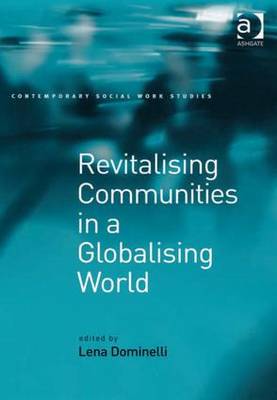Contemporary Social Work Studies
2 total works
Written by leading authorities in the field, this challenging book addresses complex issues of ethnicity and racial discrimination in ways that encourage further debate and analysis. Its main theme is that social work has been and remains, deeply implicated in racist policies and practices that have been locality specific, but that racism is also recognizable across borders as a phenomenon that appears everywhere. At the same time, the book focuses on innovative theories and practice which seek to promote an emancipatory social work which sets itself the goal of eradicating social injustice - particularly that applying to race. The contributors come from a wide range of countries and describe their experiences in tackling racism in social work at the levels of both theory and practice. This provides an impressive range of perspectives which cover models of social work created by people who have had to live with racism and find ways of overcoming it as well as those who have struggled to become able to express their own ethnicity without oppressing others. The concluding message of the book is a positive one - people can create a world that goes beyond racial divides by accepting, validating and celebrating diversity while at the same time recognizing that people share many commonalities with others which can be used to establish egalitarian relationships, realize social justice and communicate effectively with each other.
"Revitalizing Communities" is designed around the exciting premise of exploring the opportunities and constraints that the dynamics of globalization present for human development in a range of different countries and situations. Arguing that globalization currently is a system of organizing social relations along neoliberal lines, it examines practical examples of how people respond to significant social changes in their communities. The idea of communities is deconstructed to show that globalization has collapsed the boundaries of time, space and place in ways that have exacerbated inequalities at the same time as giving rise to economic growth that has produced unparalleled riches for some. The book encompasses a number of case studies that speak to policymakers, practitioners, educators and students interested in studying globalization and making the most of its potential for change in realizing human aspirations for producing better living conditions for all at a time when the degradation of the physical environment is presenting its own challenges for economic developments that ignore the links between people and the conditions under which they live.

